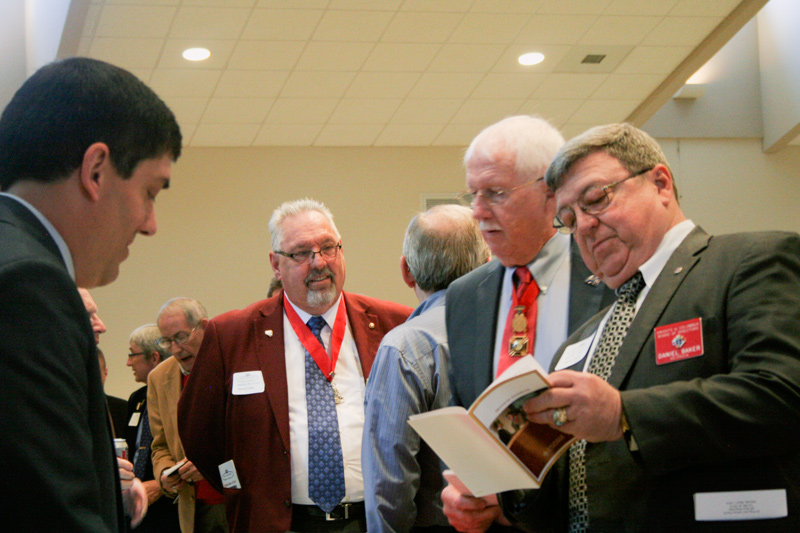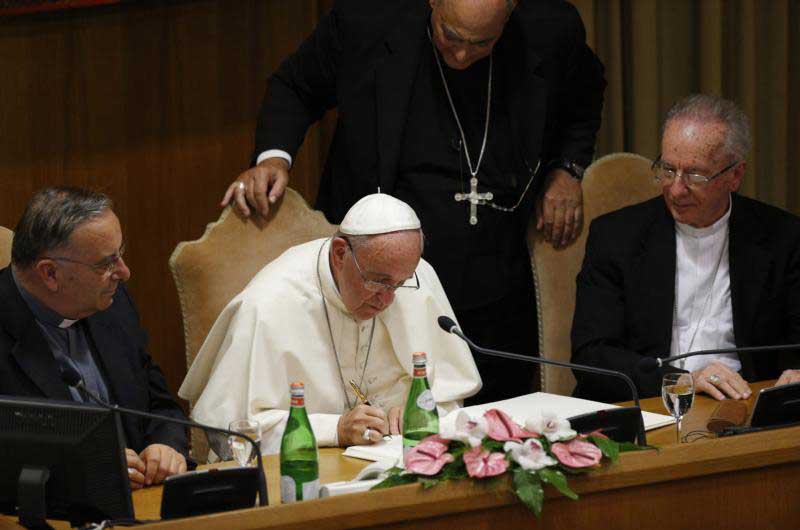![web_20200111_104045[1]-CMYK](https://archives.themiscellany.org/wp-content/uploads/2020/01/web_20200111_1040451-CMYK-678x381.jpg)
FORT MILL—Theresa Flores has been an advocate against human trafficking for about 12 years now and the one thing that she said still shocks her is the amount of people she meets that think it is not happening in the United States.
Flores speaks out against human trafficking at conferences and events throughout the country. She shares her personal story of being a victim to human trafficking at the age of 15 and educates the public on what they can do to help.
One of those events was held on Jan. 11 at St. Philip Neri Church. January is National Human Trafficking Awareness Month, but the 11th is the official day to recognize the evil and widespread effects that human trafficking causes nationwide.
It was Sabina Fernandez, who volunteers with the church’s social justice ministry, who scheduled Flores to come to the church and share her story. Fernandez wanted to educate her fellow parishioners on an issue that she is so passionate about.
“I saw her speak a few years ago in Charlotte and I found her to be so moving that … I became involved in the movement to end human trafficking,” said Fernandez, who is also a member of the Catawba Area Anti-Human Trafficking task force.
With two teenage daughters of her own, Fernandez said she realizes how vulnerable that age group can be.

“I want to bring this issue to the spotlight. I want people to be educated on how to spot it and what they can do,” she said.
That is exactly what Flores aims to do — educate the public to help save children and adolescents from human trafficking.
“No one chooses to do this,” Flores said. “People need to understand that. So many people think it only happens overseas or to illegal immigrants. It happens in every community — small and large — all over the U.S.”
Flores knows because it happened to her. She was 15, living in a wealthy suburb of Detroit, when a young man she had a crush on offered her a ride home from school.
Instead of being driven home, she was drugged and raped. Traffickers took pictures and threatened to show her father and his boss. She was told she had to “earn” the photos back, and for two long years, Flores lived the life of being human trafficked, servicing anywhere between four and 10 men at a given time, attempting to repay an impossible debt.
She continued to attend school with her trafficker and live a semblance of a normal life, even running on the track team.
Then, on what she described as her worst night, she was saved. Drugged, beaten, and left for dead in a motel room, she managed to stumble to a nearby diner. A waitress called the police, and a short time later, her family moved away.
Now, Flores works to save others. She educates staff at businesses such as banks, hotels and gas stations.
“We tell them what to look for and we pass out missing persons flyers so they can be on the lookout,” she went on. “It is about knowing the signs and then knowing what to do to help the victim.”

Flores gives out mousepads, and business cards and signs to post with the hotline number. But the most successful item has been the labels that are placed on the wrapper of a bar of soap.
When victims are taken to a hotel and use the bathroom, they will hopefully see the hotline to call. Flores said the bar of soap is probably the most accessible item for them.
At the event at St. Philip Neri, participants labeled the bars of soap with the human trafficking hotline number and then distributed them to local hotels.
“You would be surprised what a great reception we get from the hotels,” Flores said. “They want to help.”
The SOAP Project stands for Save Our Adolescents from Prostitution, and according to www.soapproject.org, almost 100% of the visited hotels accept the labeled soap during a given outreach.
The effects of human trafficking are widespread. Her website, www.traffickfree.com, also states that 77% of all child trafficking victims will go on to participate in adult prostitution. Flores also spoke about victims succumbing to mental illness such as severe PTSD and depression.
The website reveals alarming facts, such as that the average age of entry into child prostitution in the U.S. is between 12 and 14.
Fernandez said the Fort Mill area is particularly vulnerable due to its proximity to Charlotte, and the city’s reputation as being a “hub” for human trafficking because it is near Atlanta and Myrtle Beach, and a major international airport.
The Social Justice Ministry at St. Philip Neri takes on many other causes as well, such as creating care packages for the homeless and feeding the homeless, but Fernandez said educating her fellow parishioners on human trafficking is something she is quite passionate about.
“We have to go out and love and support others. It is our Agape love, our communion,” she said. “This is our call to action.”
By Theresa Stratford/Special to the Miscellany



